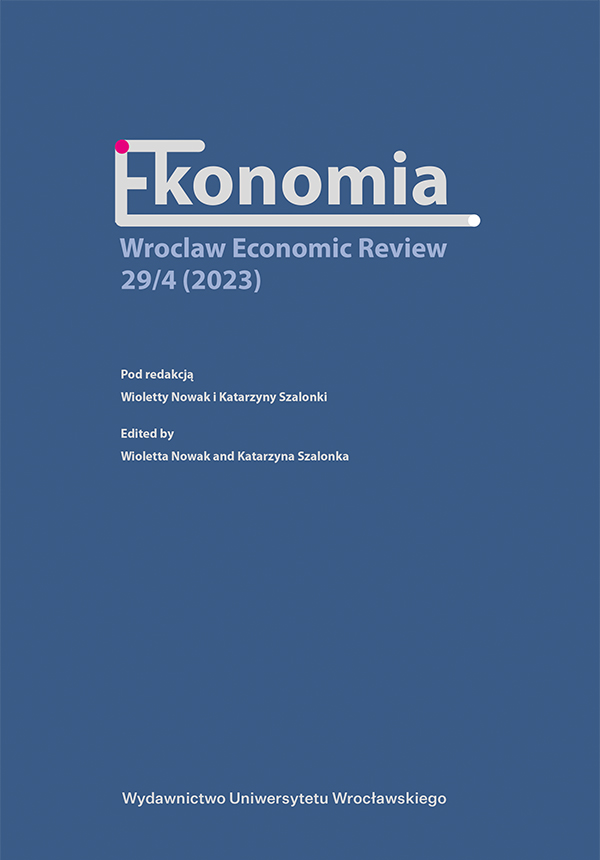Food deconsumption as part of a sustainable lifestyle: A study of Polish deconsumers
Food deconsumption as part of a sustainable lifestyle: A study of Polish deconsumers
Author(s): Anita SzuszkiewiczSubject(s): Agriculture, Health and medicine and law, Socio-Economic Research
Published by: Wydawnictwo Uniwersytetu Wrocławskiego
Keywords: deconsumption; lifestyle; food products;
Summary/Abstract: Deconsumption, defi ned as a wide spectrum of voluntary activities aimed at reducing consumption levels, is a multidimensional and multidisciplinary phenomenon, which concerns the reduction of goods and resources purchased, consumed, and used by consumers. The phenomenon could be manifested in a partial resignation from the purchase of products or possession of goods, reducing the consumption of resources or changing the current way of meeting needs. Deconsumption has numerous links with the concept of sustainable development, a trend that has gained importance in recent years as a response to excessive and unsustainable consumption and production. The purpose of this article is to examine and characterize the importance and interactions between food deconsumption — its forms (such as limiting consumption levels, eliminating food categories, etc.) and subjects (diff erent food categories) — and the sustainable lifestyles of consumers. Empirical research was conducted in order to recognize consumer opinions and behaviors in the context of selected manifestations of deconsumption. The quantitative study was conducted in November 2021 on a sample of N = 516 Polish respondents using the CAWI technique and the authors’ own questionnaire. The respondents were asked about, among other things, the reduction of food consumption. The main hypothesis of the study was that deconsumption practices among Polish respondents are manifestations of their aspirations to live a sustainable lifestyle — for this purpose, a statistical hypothesis of no correlation between belonging to one of the groups of respondents (incidental, fragmentary, or lifestyle deconsumers) and food deconsumption practices was formulated and tested in a quantitative study. One in two respondents declared a reduction of food consumption in the twelve months preceding the survey. Health concerns were the second most common reason for food deconsumption, preceded by rising food prices, which highlighted the importance of motives of an economic and health nature over the others covered in the survey, and could therefore be attributed to sustainable practices relating to consumers’ lifestyles. The respondents gave up or limited the consumption of salty snacks, sweets, and ready meals to the highest degree. A relatively high percentage of respondents declared limiting the consumption of meat and cold cuts as well. The reduction of fi sh and seafood and dairy products consumption was observed to a slightly lesser extent. The results of the study revealed a relatively high consumer awareness of healthy eating, as well as care for health and a slim fi gure. This observation coincides with current consumer trends (care for health, conscious consumer, well-being, “health again”). Deconsumption in the researched study sample took also the form of dietary trends such as fl exitarianism, vegetarianism, and veganism, which are gaining popularity nowadays.
Journal: Ekonomia – Wroclaw Economic Review
- Issue Year: 29/2023
- Issue No: 4
- Page Range: 21-33
- Page Count: 13
- Language: English

